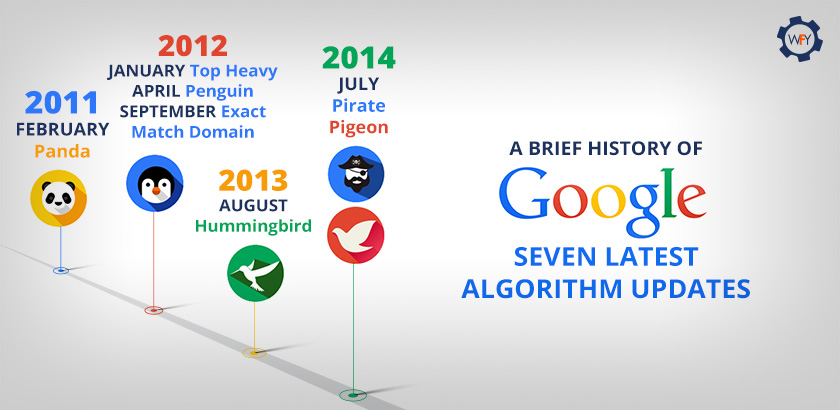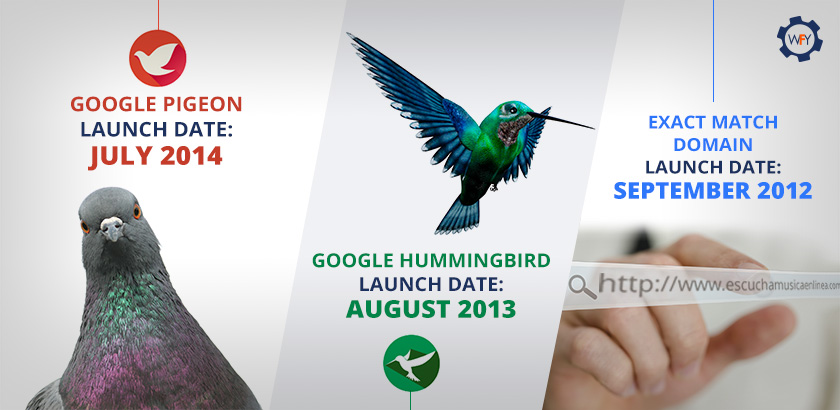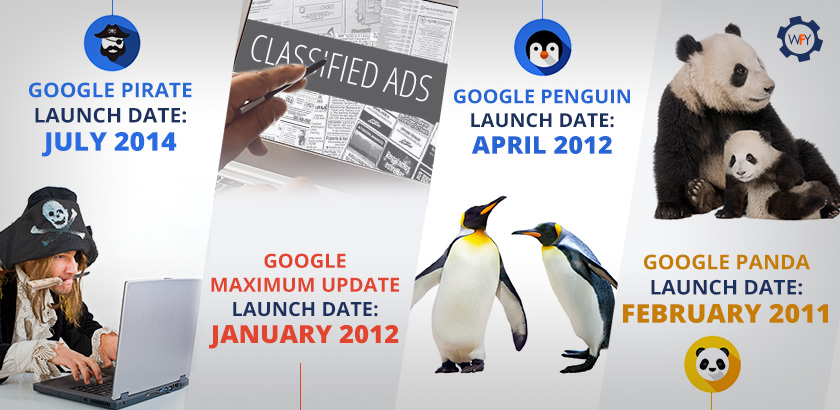A Brief History of Google's Last 7 Major Algorithm Updates
4 min read
March 10, 2015
 To rank well in search results, paying attention to Google's algorithm updates is imperative because, at the end of the day, Google's goal is to provide searchers with the most valuable results pertaining to their search queries. Each algorithm update was designed with this in mind. Playing by Google's rules can reward your website with increased visibility and more traffic, while neglecting to do so will almost certainly get it penalized. However, in order to appease Google, you must first know what rules to follow, and with Google's new mobile update rolling out on April 21, now is a good time for a quick refresher course on seven of Google's most prominent past updates:
To rank well in search results, paying attention to Google's algorithm updates is imperative because, at the end of the day, Google's goal is to provide searchers with the most valuable results pertaining to their search queries. Each algorithm update was designed with this in mind. Playing by Google's rules can reward your website with increased visibility and more traffic, while neglecting to do so will almost certainly get it penalized. However, in order to appease Google, you must first know what rules to follow, and with Google's new mobile update rolling out on April 21, now is a good time for a quick refresher course on seven of Google's most prominent past updates:
Pigeon
Over time, search engines have quickly become the number one source for business-related information on a local level. In response, Google Pigeon was released in July 2014 with the purpose of making local search results more useful and relevant.While Google had previously been delivering results based on the location terms included in the search query, it would now take users' actual current location into account. The Pigeon Update is beneficial to both local businesses and to their targeted customers since it makes it easier for the two to get connected.
Hummingbird
When you think of a hummingbird, what comes to mind? Speed? Precision? Well, those are the two defining characteristics of the Google Hummingbird Update. Google Hummingbird was first released in August of 2013 with the goal of delivering more relevant results by placing an increased focus on user intent and decreasing focus on the individual words composing any given query.The reason for this comes from the more conversational approach people were now taking when using search engines, a result of people more frequently turning to their mobile devices when in need of information, which increases the importance of looking at search phrases as a whole. Consider the way you talk to Siri, for example. It feels more natural to say, "How do I get to Miami Beach?" than it does to say, "Directions Miami Beach," which is the way most people would type it into the search bar.
Exact Match Domain
An exact match domain, by definition, is a URL that exactly matches a specific search query. The goal of using an exact match domain is to take the shortcut approach to a higher ranking since some have found they can reach a peak position in search results while providing lower quality content. The reason this works is because placing those keywords in such an important part of the website makes them appear more relevant to the topic of the site, even if this is not at all the case. An example of this is someone wanting to listen to music online and searching "listen to music online". A site with a URL similar to "www.listentomusiconline.com" is a possible exact match domain that might come up as a top result.However, that person is most likely looking for a website more like 8tracks or Pandora, so the purpose of the Exact Match Domain Update, launched in September of 2012, update was to allow sites like those to come up instead.
Pirate
In August 2012, Google released its Google Pirate Update with the purpose of penalizing any websites that were infringing on copyright laws by enabling the illegal download of music, television shows, movies, etc.Throughout 2014, the number of websites supporting piracy had increased considerably - it had received more than 345 related link removal requests in that one year alone - so Google knew it needed to take action once again. It responded by rolling out Pirate 2 last October which minimized the visibility of torrent sites in search results by up to 98%.
Penguin
The Google Penguin Update was released by Google in April of 2012 to reinforce its point that trying to beat the system or take the lazy way out was not going to work. Penguin penalized any website that had been utilizing shady link schemes, such as spam and unnatural links, to trick Google into giving it a higher spot in search results.As we discussed in a past post, How the Google Penguin Update Has Affected SEO Practices, this update was catastrophic for many companies who now needed to fix the issue fast or else remain on Google's bad side indefinitely.
Top Heavy
No one likes websites that are overrun with advertisements. Ads makes it more difficult for users to navigate a webpage. This is especially true when the excess of ads is displayed above-the-fold since this prevents people from immediately being able to find what they're looking for.To create a more optimal experience for users, the Google Top Heavy Update was launched in January of 2012 to penalize any webpage with too many ads placed at the top.
Panda
In February of 2011, Google Panda was released. The purpose of this algorithm update was to punish both websites called "content farms", which contained high levels of spam or shallow, low quality content, and "scraper sites", which contained a high ratio of content duplicated from other places on the web. Since the Panda Update was first implemented, it has been significantly updated more than 25 times, making it the most frequently updated algorithm change discussed in this post.In order for Google to provide the best search results possible, it must keep up with the evolution of technology since this affects how people are searching. As a result, most of these algorithm changes have been updated time and time again, and now that the number of mobile searches has reached an all time high, Google knows its time for another update. So, in addition to paying attention to these seven updates, it's necessary for you to start planning how you'll optimize your site for mobile search.












